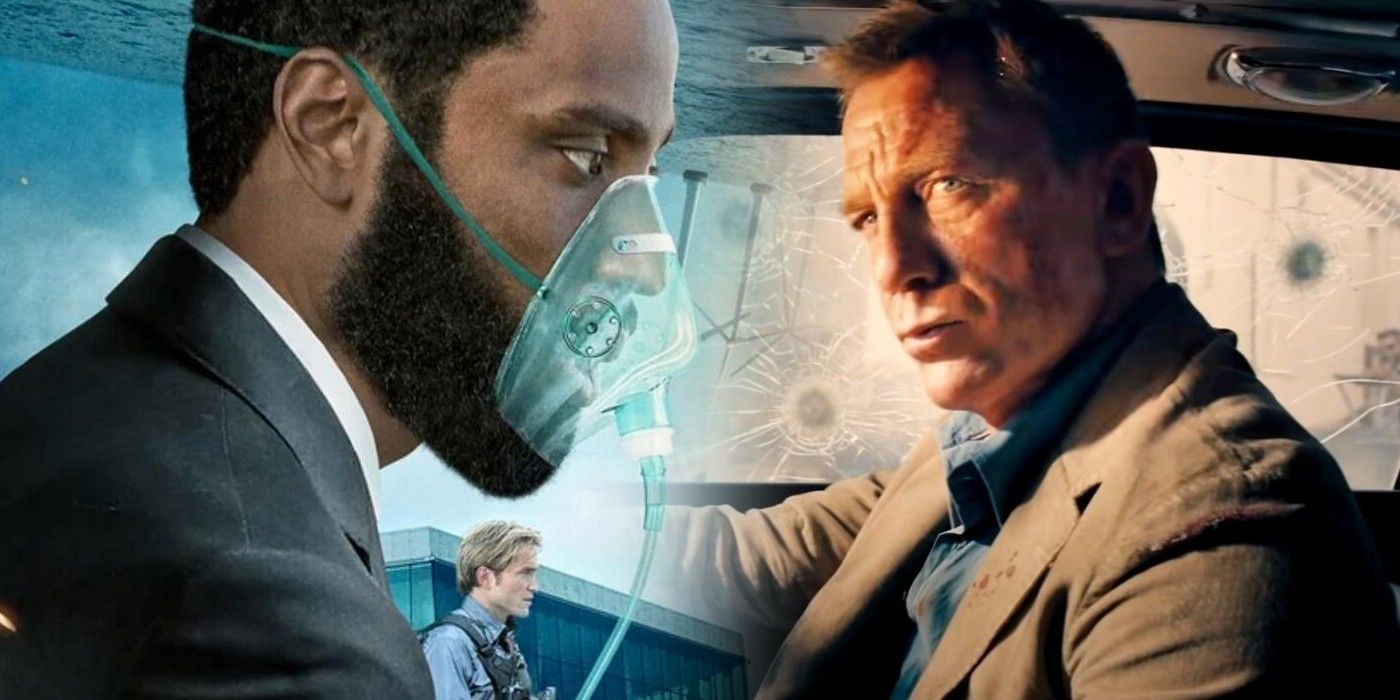
Tenet proves two things - time travel is best left to the professionals, and Christopher Nolan should be the man to lead James Bond after the departure of Daniel Craig. Released in theaters contentiously during the throes of COVID-19, Tenet will perhaps be remembered more for its impact on the cinema industry than for anything that transpires on-screen. Tenet has also (not unjustly) earned a reputation as Christopher Nolan's most confusing effort yet, and with Inception in his back catalog, that's some feat. Tenet doesn't just require multiple viewings to understand properly, it demands copious note-taking, subtitles, and frequent use of the pause button.
But beyond the confounding inversions and brain-melting timelines, Tenet is essentially James Bond with a PhD in theoretical physics. John David Washington's Protagonist is a top-tier spy with suave charisma to spare, and embarks on a mission to save the world from an evil Russian baddie with paper-thin motives. Along the way, he takes in all manner of exotic locations and tempts a femme fatale to betray her lover, all to a cinematic soundtrack on the grandest of scales. The Bond DNA in Tenet is obvious from the first scene, and makes no attempt to hide the copied homework.
With Daniel Craig due to step down from his gig at MI6, the future of James Bond has reached a crossroads. More than half a century down the road, the "James Bond" name is still one of the most influential in cinema, and Eon will have its choice of filmmakers when the time comes to think about Bond 26. Tenet proves Christopher Nolan should top their wanted list.
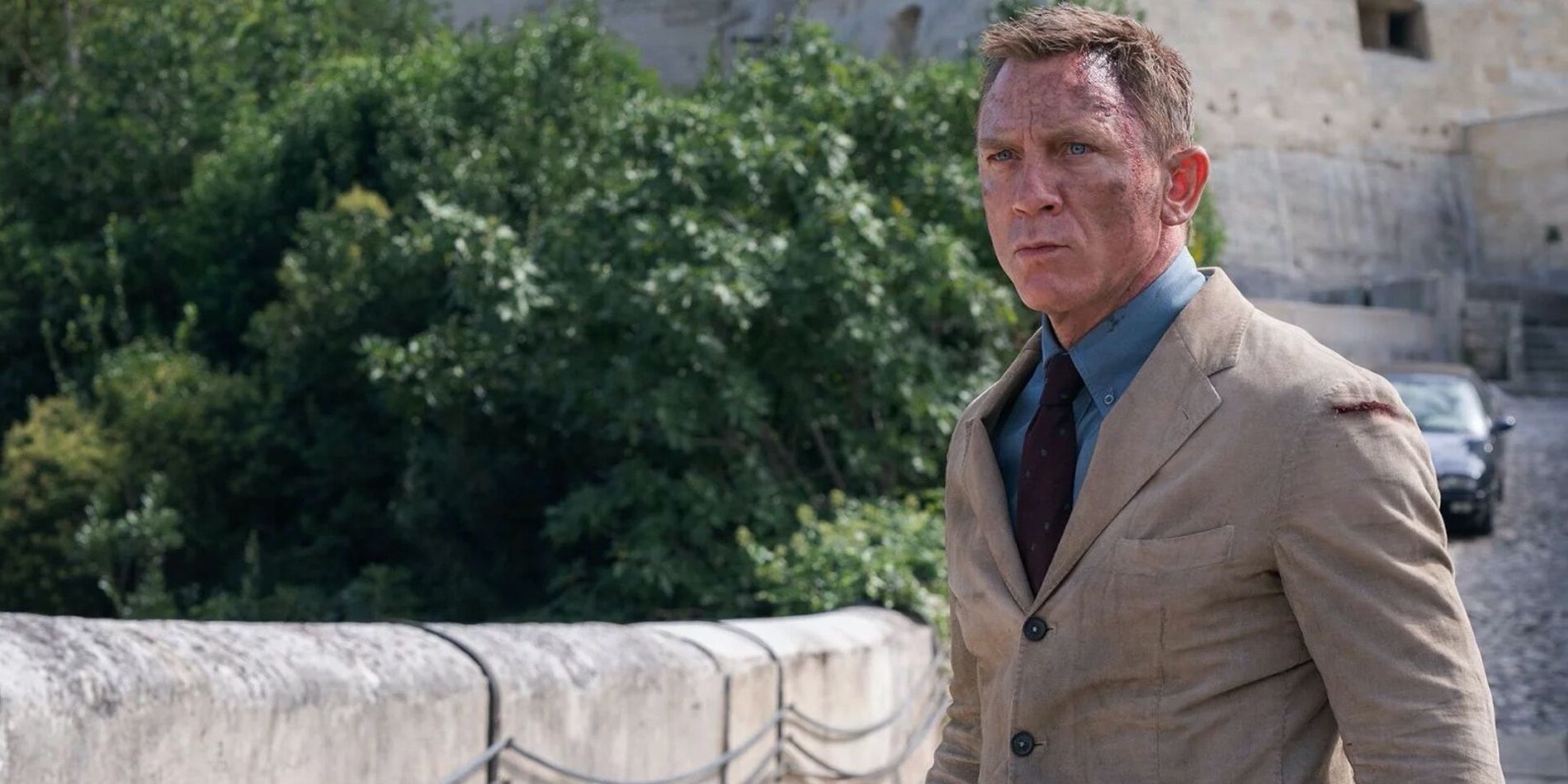
A change of face has barely inconvenienced the James Bond franchise in eras past. From the earliest years of Sean Connery to the 1990s cheese of Pierce Brosnan, 007 moved from one incarnation to the next in a seamless transition. Each adventure was a self-contained affair where long-term arcs (like the gradual reveal of SPECTRE) played out in the background, and there was very little continuity besides small references - Roger Moore's Bond visiting Tracy's grave, for instance. Minimal effort was made to differentiate each iteration of 007, creating a unceasing conveyor belt from film to film, regardless of whether Bond regenerated in the meantime.
When Pierce Brosnan received the boot after Die Another Day, it was painfully clear that James Bond was in dire need of modernization. New upstarts like The Bourne Identity had reinvigorated the spy genre, while Mike Myers turned 007's shtick into parody with Austin Powers. As a result, Bond returned as a man reborn in Casino Royale. Not only was Daniel Craig's Bond darker, edgier and more grounded, but the modern films have depicted a character from his very first years as a Double-0 agent to a veteran repeatedly failing to retire in No Time To Die. Where previous Bonds would drift their Aston Martins briskly around the issue of continuity, the quintet of Daniel Craig films crash straight into it, following one man's journey from start to finish.
With No Time To Die marking the end of James' career (he's even replaced as 007 by Nomi), Bond 26 can't recast the lead role but keep the same cast, tone and continuity, as in the old days. James Bond's next offering needs to reboot, starting from scratch in much the same way Casino Royale did in 2006. This is especially vital in the current landscape of shared universes and multi-platform franchises, where audiences are more attuned to how each installment may or may not be interconnected. Whatever the next guise of James Bond might look like, it has to differ from the current model... and this is where Christopher Nolan comes in.
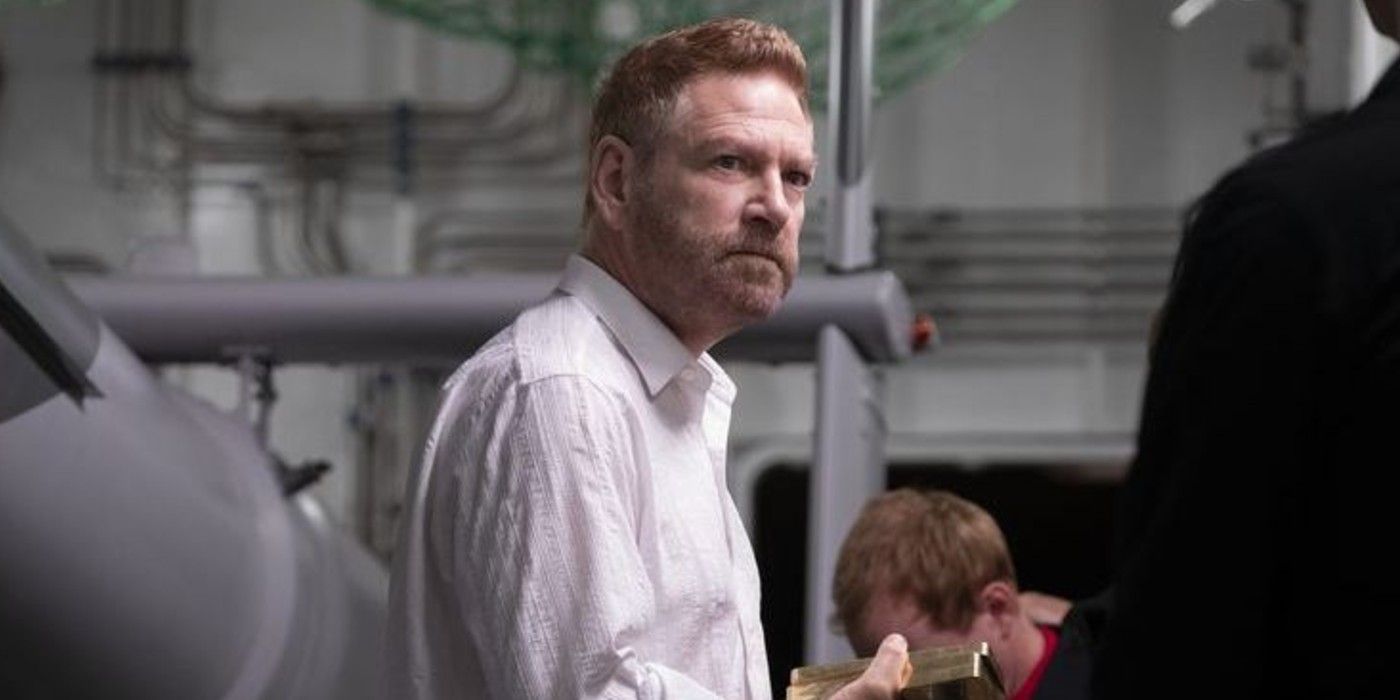
It's a well known fact (probably) that all British filmmakers have at least a little James Bond in their blood, but with Tenet, Christopher Nolan pens a heartfelt love letter to all things 007, making no apologies whatsoever. One of the most obvious parallels is in Kenneth Branagh's villainous Sator, who could quite easily be parachuted into your Bond film of choice, and few questions would be asked.
A vicious Russian arms dealer with a God complex, Sator would destroy the world simply because his own death is looming, and The Protagonist even meta-points-out how ridiculous his motive is. But Nolan kicks the mold of a classic Bond villain up a few notches (or down, we really can't tell anymore). See, Sator isn't the real villain of Tenet; he's a proxy for unseen villains from the future looking to rewind the entropy of the planet and erase Earth's past. This creates a unique dynamic where success or failure is bigger than any single enemy, and Tenet's final battle actually hinges on keeping Sator alive long enough for The Protagonist to recover the Algorithm. It's a far more inventive finale than two men firing guns at each other, or battling upon a precariously high ledge. Nolan creates the suspense and thrills of a final confrontation, even while The Protagonist and Sator are in entirely different countries.
Branagh aside, more or less every major character in Tenet has a counterpart in James Bond - Barbara is Q, Fay/Michael Crosby share the role of M, Mahir is Felix Leiter, etc. But nowhere does Christopher Nolan indulge more in modernizing Bond-isms than with The Protagonist and Kat. Ian Fleming intentionally wrote his James Bond character as a blank slate for readers to project themselves onto, and Nolan duly follows suit by not even giving his "protagonist" a name.
John David Washington's hero also strips the toxic masculinity of James Bond right back. Tenet's Protagonist is every bit as dangerous and cool as Bond, and by manipulating Kat for his own ends, the character's morality isn't squeaky clean either. But where 007 would've bedded Kat right under Sator's nose then come up smiling the next morning, The Protagonist is restricted to a small kiss before the final battle, recognizing that to sleep with Kat would be questionable due to her emotional state, and put her in even more danger from the maniacal angry husband above deck - two things Bond often (willfully) overlooked. Generally speaking, The Protagonist is less mission-centric than Bond too, prioritizing rescuing innocents, but never shying away from murder when the occasion arises, and crucially, allows Kat to save herself in the end, rather than letting her flounder as a helpless damsel.
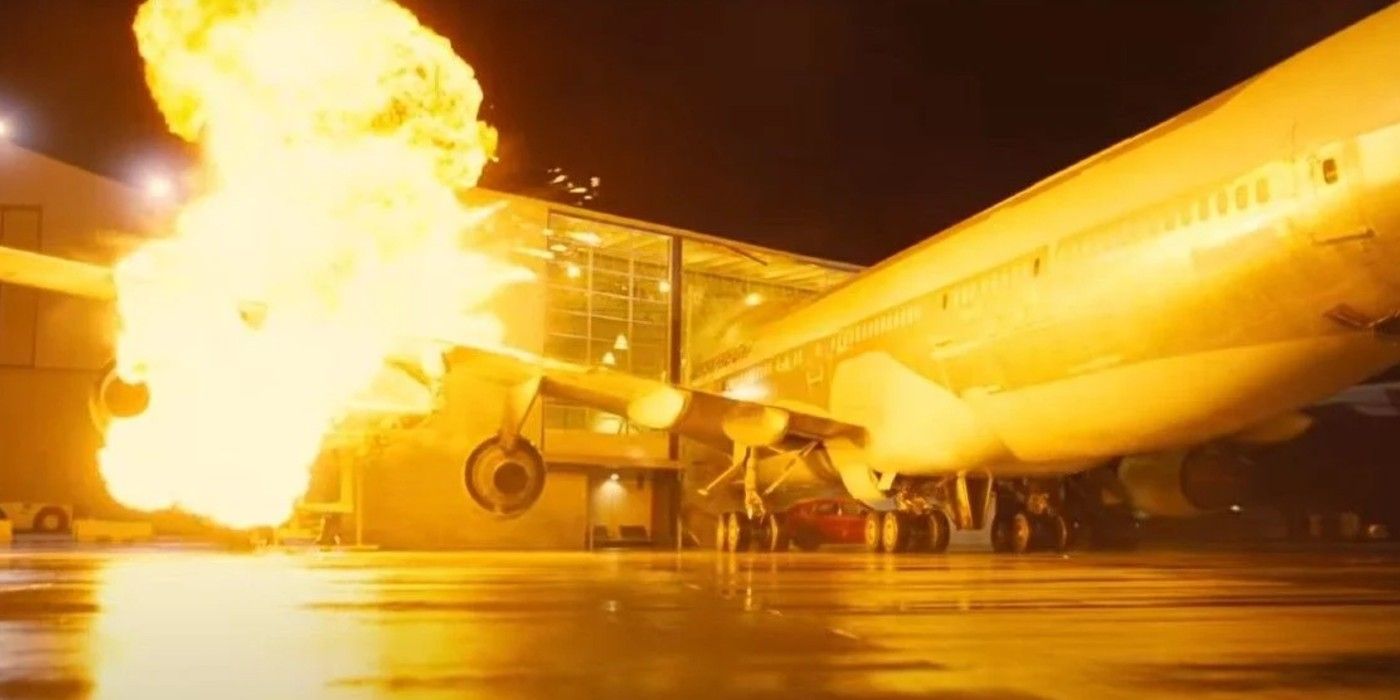
Not for one second is anyone suggesting Bond 26 should incorporate multiple timelines, layered realities, or any other kind of Christopher Nolan science-fiction madness. As much as Tenet does right, its premise is ridiculously complex, and James Bond stands to gain nothing by diving down Nolan's quantum rabbit hole. With that said, audiences are perhaps ready for a smarter 007 adventure, and Tenet gives a perfect demonstration of how this can work through its action sequences.
The typical James Bond set-piece involves 007 being thrown into the thick of the action. Explosions go off, henchmen are killed with reckless abandon, and Bond races around an exotic locale in a beautiful car. Tenet offers the same thrills, but with a more cerebral foundation, the best example being the Oslo freeport heist where a jumbo jet is crashed as a distraction while The Protagonist and Neil carefully move through a series of gas-locked chambers to find Tenet's first turnstile. The sequence employs a lot of setup, with Neil getting a tour of the facility first, then both characters discussing their approach with Mahir, but the result speaks for itself. Action cinema that gets brain juices pumping alongside the adrenaline.
Arguably, Tenet is guilty of overindulging in this regard. The final "temporal pincer movement" is a cacophony of twisting timelines, pivotal moments happening off-screen, and unintelligible dialogue. If Bond 26 could follow the Oslo freeport sequence's example, but hit the brakes before reaching the complexity of Tenet's climax, 007's action sequences can adopt an entirely new dimension.
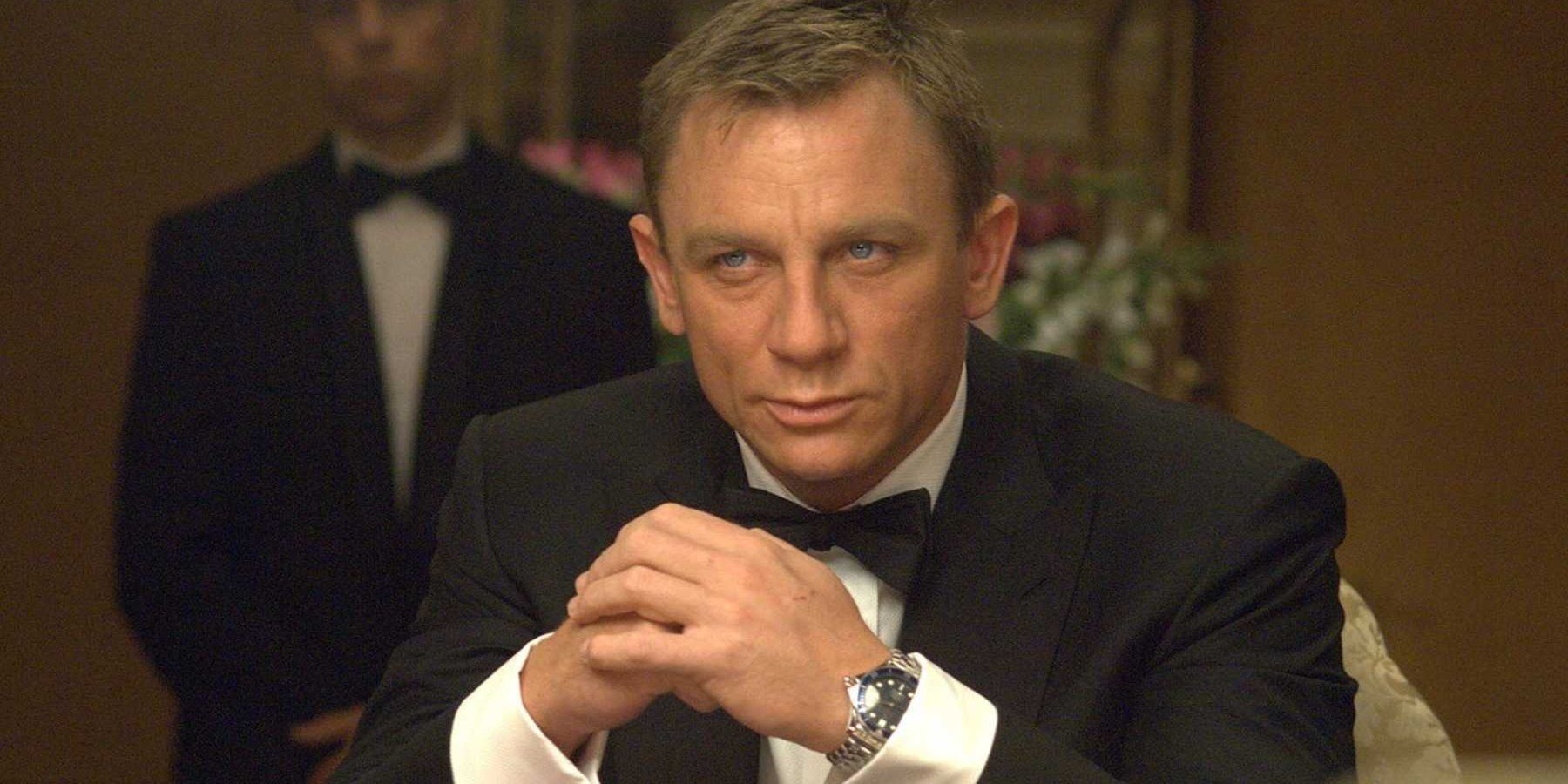
A self-confessed James Bond fan, it comes as no surprise that Christopher Nolan knows his way around a 007 adventure. But Tenet doesn't just prove the director's affinity for Bond - it's exactly the direction the long-running franchise needs following the Daniel Craig era. After the Die Another Day disaster, there's no question that 007 needed to drop the campy lightness from his formula. But Casino Royale and its sequels might've veered too hard in the opposing direction, stripping James Bond of its gadgetry, humor and levity. It's a balance that modern Bond films have struggled to nail, but Tenet handles with surprising ease. Tenet's inversion is, frankly, madder than a box full of badgers, but Nolan presents this insane concept with grounded realism. If the director can meld Algorithms and backwards fight scenes into Tenet's gritty, real-world setting, he can probably handle a few outlandish Bond gadgets while retaining the intensity post-Brosnan Bond is renowned for.
Nolan can also fix another element James Bond has routinely struggled with in recent times - the mystery. Daniel Craig's James Bond movies try to inject a long-term sense of intrigue with the gradual reveal of SPECTRE (or Quantum, depending on the film), but the journey is a muddled one, awkwardly tying Blofeld into Bond's past. Tenet, along with most of Nolan's other releases, wholeheartedly proves the director's capacity for weaving an effective mystery. Bond 26 needn't bother with anything in the high-concept realm of Tenet, but a cohesive, Nolan-esque mystery plot would reinvigorate the iconic spy after No Time To Die.
from ScreenRant - Feed https://ift.tt/3b02N7I


0 Comments